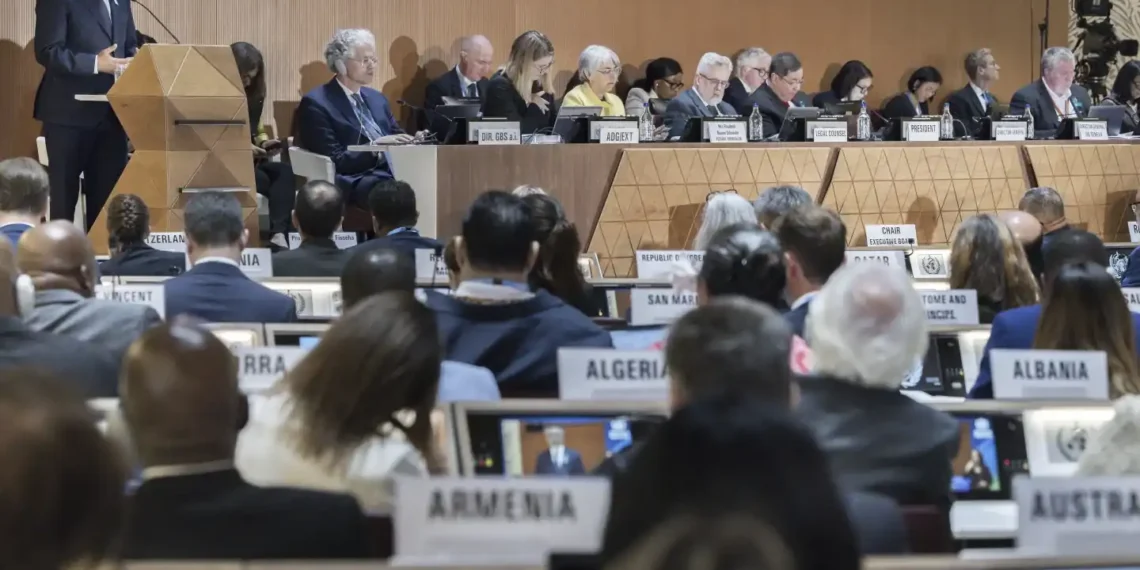WHO Chief Defends $2.1 Billion Budget Request After US Funding Cuts, Comparing It to War Costs
GENEVA — Stripped of its largest donor, the United States, the World Health Organization (WHO) is now fighting to secure support for its $2.1 billion annual budget. WHO Director-General Tedros Adhanom Ghebreyesus urged member countries on Monday to see this budget as “extremely modest” — especially when compared to global military spending and tobacco industry advertising.
“Two-point-one billion dollars is the cost of a single stealth bomber,” Tedros told the WHO’s annual assembly. “It’s the price of global military spending every eight hours. Yet it’s only a quarter of what the tobacco industry spends yearly on ads for a product that kills people.” His pointed comparison highlights the value of investing in health over harm.
Though Tedros did not directly mention the U.S. funding cut, he has called the decision a “mistake” and urged Washington to reconsider.
A Budget Under Pressure
The WHO has adjusted its budget for the next two years, reducing it by 22% after cuts from the U.S. and some Western countries. So far, about 60% of that funding has been pledged, but a gap of $1.7 billion remains.
Tedros acknowledged the difficulty: “Mobilizing that sum won’t be easy. But for an organization working in 150 countries with a vast mission, $2.1 billion a year is not ambitious. It’s modest.”
Impact of Funding Cuts
The budget cuts have already affected WHO’s ability to handle its broad responsibilities — from advising on sugar levels in soft drinks to leading global responses to pandemics like COVID-19 and outbreaks like Ebola or polio.
Tedros and his team are also dealing with reduced support from European countries that are shifting funds towards defense amid geopolitical concerns, rather than humanitarian aid.
Matthew Kavanagh, director of Georgetown University’s Center for Global Health Policy, said many nations are using the U.S. withdrawal as an excuse to scale back their contributions. “The WHO faces an existential crisis,” he warned, “one that goes beyond money — it’s about whether multilateral cooperation can survive in a world marked by nationalism and misinformation.”
The stakes are high. Kavanagh stressed that millions of lives could be lost needlessly if the global health community fails to respond effectively.
Pandemic Preparedness and Funding Reforms
At the ongoing nine-day World Health Assembly, WHO member countries are expected to approve two major initiatives:
- A 20% increase in assessed contributions (mandatory fees paid by member states) to strengthen WHO’s core finances and reduce reliance on unpredictable voluntary donations.
- A historic pandemic treaty aimed at preventing a repeat of COVID-19’s uneven global response. The treaty would ensure countries sharing virus samples get access to resulting vaccines and medicines and allow WHO to allocate up to 20% of these products to poorer nations.
Tedros called this assembly “a truly historic moment,” but the treaty’s success remains uncertain. The U.S., a key player in vaccine development, is currently not part of the treaty, and enforcement mechanisms are weak—common challenges in international agreements.
Still, experts like Kavanagh see the treaty as a potential turning point, especially for developing countries gaining greater influence in global health decisions.
WHO Faces Criticism and Internal Changes
The WHO has long faced criticism, notably from former U.S. President Donald Trump, who accused it of mishandling the COVID-19 crisis and pulled U.S. funding. President Joe Biden reversed that decision by rejoining the WHO, but Trump’s January executive order paused future U.S. payments.
Outside the U.N. compound in Geneva, activists protested the pandemic treaty, accusing WHO of centralizing too much power and threatening freedoms. Some displayed banners depicting WHO’s Tedros and Microsoft co-founder Bill Gates — a major WHO supporter — in a controversial light.
Meanwhile, WHO has responded with management shake-ups to address financial challenges. Last week, Tedros announced the departure of his top emergencies adviser, Dr. Michael Ryan, amid efforts to tighten budgets. The organization now faces a salary shortfall exceeding $500 million due to funding losses.
In summary, the WHO’s $2.1 billion budget request may seem large but pales in comparison to global military and tobacco industry spending. With the world still facing health crises and future pandemics looming, WHO leaders warn that adequate funding and global cooperation are more crucial than ever — for the sake of millions of lives worldwide.
This article was rewritten by JournosNews.com based on verified reporting from trusted sources. The content has been independently reviewed, fact-checked, and edited for accuracy, neutrality, tone, and global readability in accordance with Google News and AdSense standards.
All opinions, quotes, or statements from contributors, experts, or sourced organizations do not necessarily reflect the views of JournosNews.com. JournosNews.com maintains full editorial independence from any external funders, sponsors, or organizations.
Stay informed with JournosNews.com — your trusted source for verified global reporting and in-depth analysis. Follow us on Google News, BlueSky, and X for real-time updates.














